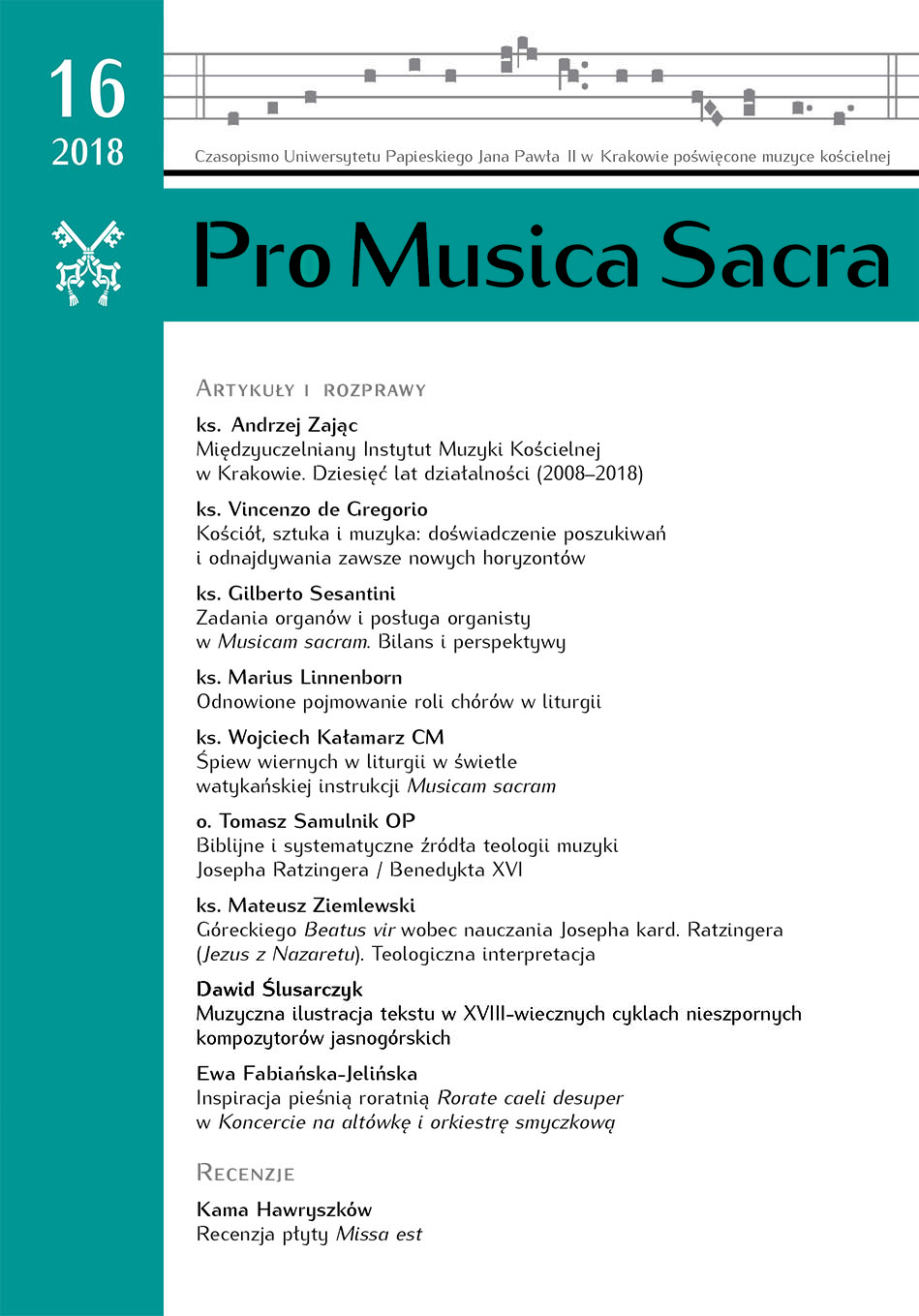Church, art and music: the experience of constant seeking and discovering new horizons
DOI:
https://doi.org/10.15633/pms.2576Keywords:
Church, Naples, Rome-Vatican, the Pontifical Institute of Sacred Music, sacred music, music school, the art of music, musical formation, the experience of faithAbstract
On the basis of his own experiences of music, starting with the early childhood, throughout the university studies, until holding various managerial positions at music institutions, the author reaches the final conclusion that the very idea of musical school was born in the Church. The Church has always taught music and singing. Liturgical music has invariably been viewed as “primordial” (“di prim’ordine”), requiring professional skills from its performers. It has not only been a form of artistic expression or the aim in itself, but an instrument of communicating the Gospel and the words directed by the Church to God since the dawn of her history. The “professionalism” of the music within the Church, however, calls for the places of formation and education, so as to endure in time and to lay the foundation for setting guidelines to follow. The above postulate of teaching music in the Church originates from the very mission of the latter which, through her evangelization, “sings out” her faith. The author proposes his own, based on the experiences of many musicians as well, “definition” of the Church music: “Performing music in Church is the experience of faith, enlightened with aesthetic joy which moves the deepest recesses of the soul”. The Church music, understood in this way, evokes in us responsibility for preserving and passing down to next generations the idea of balance between the conception of art as the celestial gift of God (virtus cujusdam caelestis influxus) and the fruit of human intelligence (vehementia assidue exercitationis). Art and music – according to the author – are the fruits (ingenium et opus) of intelligence, efforts and commitment, and they compound with one another into a complete and final work of art (opus cansummatum et effectum).
References
Basso A., Storia della musica dalle origini al XIX secolo, Torino 2004.
Pius X, motu proprio Inter pastoralis officii sollicitudines, 1903.
Downloads
Published
Issue
Section
License
Copyright (c) 2018 Vincenzo de Gregorio

This work is licensed under a Creative Commons Attribution 4.0 International License.
Authors who publish with this journal agree to the following terms:
- Authors retain the copyright and full publishing rights without restrictions, and grant the journal right of first publication with the work simultaneously licensed under a Creative Commons Attribution 4.0 International License that allows others to share the work with an acknowledgement of the work's authorship and initial publication in this journal.
- Authors are able to enter into separate, additional contractual arrangements for the non-exclusive distribution of the journal's published version of the work (e.g., post it to an institutional repository or publish it in a book), with an acknowledgement of its initial publication in this journal.
- Authors are permitted and encouraged to post their work online (e.g., in institutional repositories or on their website) prior to and during the submission process, as it can lead to productive exchanges, as well as earlier and greater citation of published work (See The Effect of Open Access).

